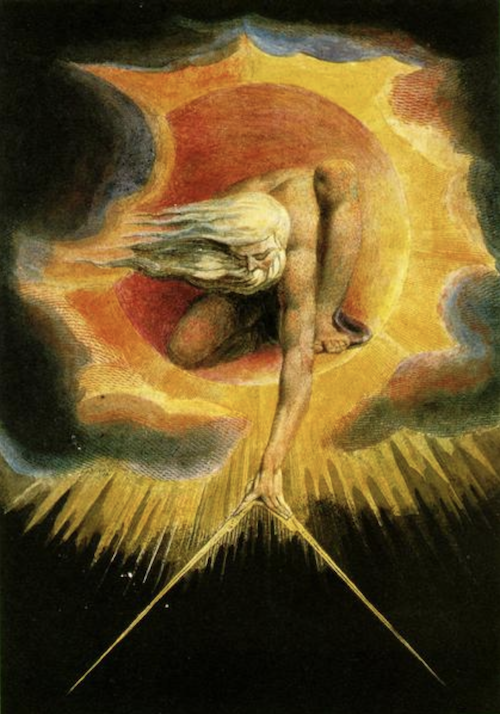by Kellie Brown
God’s embodiment and involvement in the ever-changing material world implies God is still at work, still revealing God’s self. Theopoetical discourse acknowledges that God and God’s Word are not fully known and therefore remain open to discovery and interpretation. Speaking of the Bible, McEntyre reminds us that it is not a book of intractable rules but “a living word to a living people,” (1) and therefore we should be part of a long conversation in which our current generational urgencies allow us to learn from each other and to adapt an ancient text so that it is able to hold space, to be like new wineskins, for what God is doing now, even as we continue to honor what God has already done. This mindset allows us to acknowledge God’s paradoxical intention to declare both, “I the Lord do not change,” (2) and “Behold I will do a new thing.” (3)
One of the important voices in helping us explore the dynamic nature of God through theopoetics is Callid Keefe-Perry, who ministers within The Religious Society of Friends (Quakers) and teaches at Boston College’s School of Theology and Ministry. His book, Way to Water: A Theopoetics Primer, is the first of its kind, seeking both to provide an explanation of the field and to serve as a practical guide for how this method can bring a critical lens and deep spiritual meaning to the daily Christian life. In addition to his writings, Keefe-Perry has championed theopoetics through his work as an architect and leading force in ARC (Arts – Religion – Culture), the primary organization devoted to theopoetical thought. ARC exists as a collaborative community that supports those who desire to seek a more just world for all creation through creative and spiritual practices. ARC stresses that theopoetics is not intended to be an alternative to theology, but a manner of religious reflection that focuses a greater attention on form, genre, and method.
Keefe-Perry believes that transformative power exists in using artistic and creative ways to explore the embodied experience we have on our faith journey. He likes to refer to God as the “Living Water,” a source of refreshment and renewal, what Jesus called “the gift of God…a spring of water gushing up to eternal life.” (4) Keefe-Perry trusts theopoetics to help us clear away any flotsam that obstructs our access to the Living Water. I interpret this as enabling us to interact deeply with the divine flow, to “wade into the water,” as the spiritual says.
Regardless of the metaphor, it is important to realize that theopoetics invokes much more than spiritual exploration only intended for personal insight and growth. What we glean through theopoetical exploration is meant to be shared in ministry and to equip us to more rightly and faithfully engage in social justice efforts in our communities and world. The nature of theopoetics invites all to the table and seeks to lift all voices, especially the marginalized ones. Through this framework, our eyes should become more acute and our ears more attuned to racism, sexism, ableism, classicism, and the ever-growing list of bias and injustice that God calls us to confront. The poet Lucille Clifton would often open her readings with words she had heard from an old preacher: “I come to comfort the afflicted and to afflict the comfortable.” (5) I believe that sentiment encapsulates the spirit of theopoetics. John Wesley, the founder of Methodism, put it this way. “The gospel of Christ knows of no religion but social; no holiness but social holiness. Faith working by love, is the length and breadth and depth and height of Christian perfection.” (6)
Theopoetics seems especially equipped to encourage “beating swords into plowshares” (7) so we can bring about life instead of death. Keefe-Perry hopes that theopoetics can inspire us to exchange pat answers, platitudes, absolutes, and entrenchments for hard-won insights, nuance, and receptivity. He describes theopoetics as aspiring to be rooted in humility and hospitality rather than hubris and hierarchy, large-heartedness in lieu of narrow-mindedness. It yearns to create an ethos of sharing and cooperating, of paying attention and holding space for where we and others are on the journey.
Some Black writers and scholars find theopoetics to be an invaluable tool for examining racial politics and racial justice through a religious lens. One of the preeminent voices in that field is James Howard Hill, Jr., who teaches in the religious studies department at the University of Oklahoma. Hill aims to analyze and interpret the black Christian experience in America through a theopoetical lens that does not shy away from embodied practices, artistic traditions, or controversial figures. One example of this is his Crossroads Fellow Project, “All that Noise is about America: Religion, Race, and Michael Jackson,” which examines the life and music of Michael Jackson in the context of Jackson’s Jehovah Witness upbringing. Hill explores Jehovah Witness print culture alongside black magazines and analyzes Jackson’s performances alongside the culture of the religious institution he became disassociated from. Through this research, Hill strives to understand what Jackson, a pop icon who has attracted and repulsed, and his posthumous legacy can tell us about religious and political problems in America.
Similarly, Kate Common uses theopoetics in her interdisciplinary work with feminist, womanist, and queer theologies. Common comes to theological discourse from a career in graphic design so her skills at presenting information in new and engaging ways supports her writing and teaching about how the Church must move away from its patriarchal and conquest-driven past and violent nationalist present to generate a progressive vision for a loving and inclusive space for all. She encourages her students and all of us not to give up or lose heart in this difficult and protracted mission. Jesus warned us that we would have many troubles in this world and also reassured us that He had overcome the world. I am reminded of the final stanza of “Let Evening Come,” Jane Kenyon’s most well-known poem and an apt vehicle for theopoetical contemplation. “Let it come, as it will, and don’t/be afraid. God does not leave us/comfortless, so let evening come.” (8)
Maybe any theopoetical exploration we undertake should be prefaced by wrestling with these two questions posed by theologian Richard D. McCall. 1) “What sort of God is one who is active in these events?” 2) “Who are we who engage in such activities, who thus enact our relatedness to each other and to the One we call God?” (9)
Keefe-Perry asks the question more simply— “Why theopoetics?” (10) Part of my answer to his question relates to Isaiah’s image of the coming Messiah as a new shoot that will rise up from Jesse’s old stump. Beyond the direct meaning of Jesus arising from the lineage of Jesse and David, I think that image could also represent a new way of thinking and striving. In my own search for spiritual growth, I return again and again to a line Emily Dickinson penned in a letter— “I am out with lanterns, looking for myself.” And so should we all. I believe this resonates with the theopoetical directive to seek, to discover, to illuminate, to embody. May God light our journey.
Originally published by Earth & Altar Magazine.
Artwork: Ancient of Days by William Blake. Public domain.

Kellie Brown
Dr. Kellie Brown is a violinist, conductor, music educator, and award-winning writer whose book, The Sound of Hope: Music as Solace, Resistance and Salvation during the Holocaust and World War II (McFarland Publishing, 2020), received one of the Choice Outstanding Academic Titles award. Her words have appeared in Earth & Altar, Psaltery & Lyre, Ekstasis, The Primer, Agape Review, Calla Press, among others. In addition to over 30 years of music ministry experience, she is a certified lay minister in the United Methodist Church and currently serves at First Broad Street United Methodist Church in Kingsport, TN. More information about her and her writing can be found at kelliedbrown.com.
 Christine Sine is offering three seasonal, virtual retreats to explore living in balance and in line with the natural and liturgical rhythms of the year. Join her for one or all of them September 2, October 14 and December 9. These retreats will encourage us to center ourselves and our lives as we move through the seasons beginning in Fall and moving through Advent. They will be times of reflection, creativity and fun.
Christine Sine is offering three seasonal, virtual retreats to explore living in balance and in line with the natural and liturgical rhythms of the year. Join her for one or all of them September 2, October 14 and December 9. These retreats will encourage us to center ourselves and our lives as we move through the seasons beginning in Fall and moving through Advent. They will be times of reflection, creativity and fun.

